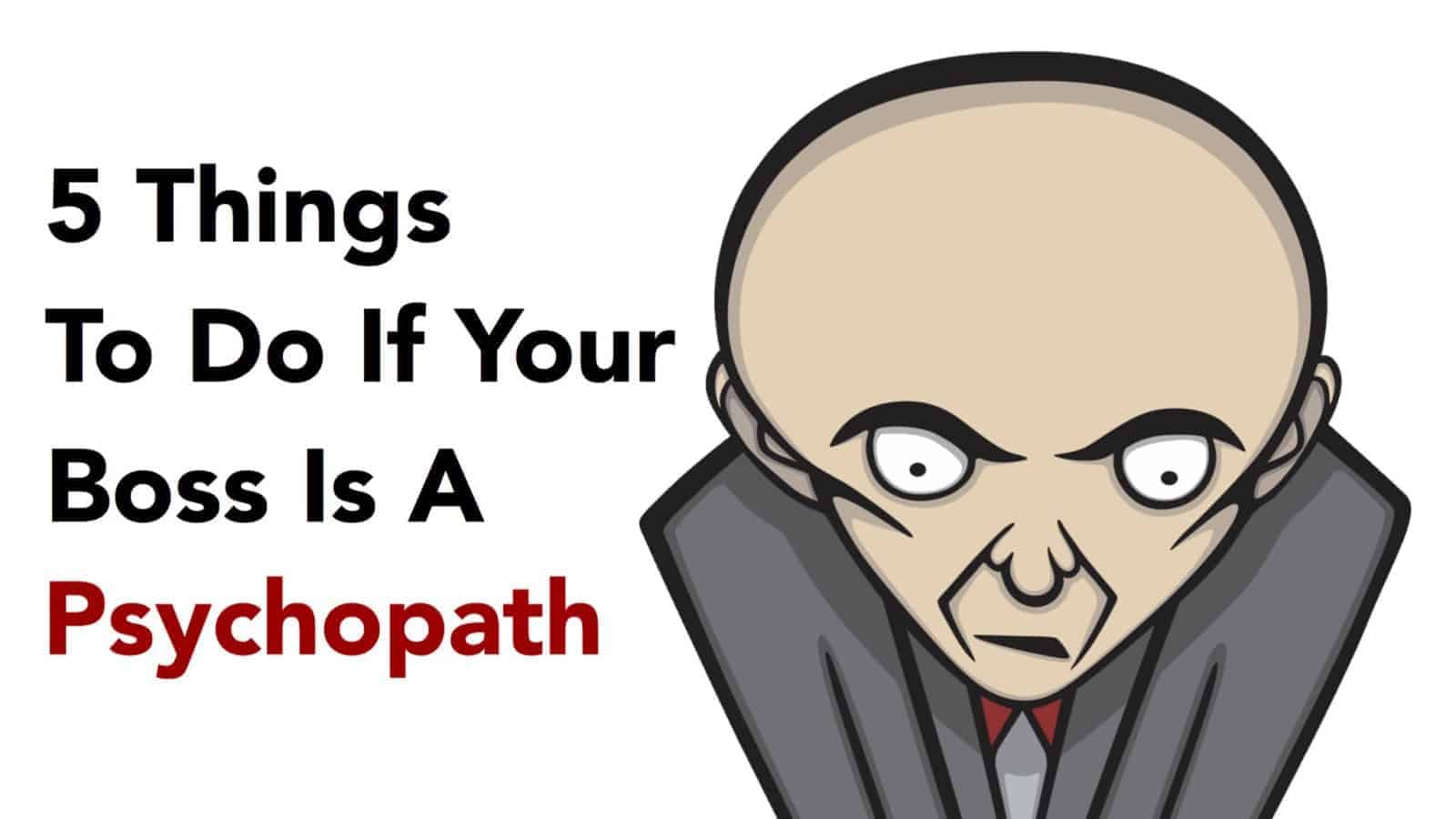‘Corporate psychopaths thrive on thrill seeking, bore easily, seek stimulation, and play mind games with a strong desire to win.’ – FBI psychologists Paul Babiak, Ph.D. & Mary Ellen O’Toole, Ph.D.
Psychopaths in business
What does it take to succeed in today’s highly competitive marketplace? Most rational people would say things like “a motivated workforce,” “innovation,” or “creative thinking.”
Can someone who lacks empathy get ahead in business? Can someone who preys on vulnerabilities? How about a boss who gets some kind of twisted pleasure from abusing their subordinates?
First, a bit of context. Corporate America is an uber-competitive, dog-eat-dog environment. Capitalism on steroids and three cans of Redbull.
Companies are bankrupted, bought out, bulldozed and no one bats an eye. When this happens, of course, most people become worried. Fearful. Insecure. As it happens, psychopaths thrive on such emotions.
The Federal Bureau of Investigation (FBI), the United State’s preeminent law enforcement body, employs psychologists who specialize in examining corporate misfits. They’ve affirmed that companies do have a place for psychopaths, sociopaths, and narcissists. Some sit on the Board. Some are CEOs. These people reach the pinnacle of Corporate America.
Enron, Bernie Madoff, WorldCom, and Lehman Brothers were all led by individuals likely to fall somewhere along the psychopath/sociopath scale.
What is psychopathy?

William Hirstein, Ph.D. and neuropsychologist, explains the history of psychopathy:
“In the early 1800s, doctors who worked with mental patients began to notice that some of their patients who appeared outwardly normal had what they termed a “moral depravity” or “moral insanity,” in that they seemed to possess no sense of ethics or of the rights of other people.”
Since then, psychologists have flipped-flopped between using the term “psychopath” or “sociopath” in describing such people.
Hirstein, after researching various sources of psychopathy diagnoses, narrowed the condition down to nine common traits:
– Lack of empathy
– Shallow emotions
– Irresponsibility
– Insincere speech
– Closed attention (only focused on themselves)
– Lack of planning
– Impulsivity
– Selfishness
– Violence
Is your boss a psychopath?
He or she doesn’t need to display all of the traits mentioned above to be a psychopath.
Medical terminology aside, just one of the nine traits Hirstein lists would create a highly uncomfortable working environment. How about working for someone who is irresponsible, selfish, and uncaring?
We’re not psychologists or mental health experts. Even those who are experts have a tough time diagnosing someone with psychopathy, narcissism, and related disorders.
Perhaps the most important takeaway from this article is how to deal with a boss who exhibits such behaviors.
(Readers: have you ever worked for a highly unstable boss or manager? We’d love to hear your story!)
5 Ways to Deal With a “Psycho-Boss”
1. Establish boundaries, if possible
If you work in a large company, it may be possible to distance yourself from your boss. Now’s a time to take advantage of your connections; perhaps you can switch teams or move into another department.
Whatever the situation may be, it is essential to remember your self-worth. If you have no options, it’s time to consider another course of action.
2. Understand that your boss won’t change
Psychopaths do not change their behaviors. Their need for dominance, control, and manipulation is in their DNA. It doesn’t even matter if you’re a high performer; your psycho-boss personality won’t suddenly shift. “They keep using people up until nobody wants to be around them,” says psychologist and author Judy Rosenberg, Ph.D.

3. Don’t justify their behavior
In other words, don’t make excuses for your horrible boss. Also, don’t misclassify your boss as “tough.” There’s a gaping distance between toughness and psychopathy. Dr. Rosenberg explains, “A tough boss is just somebody who blows up at you, but they don’t cross those lines. Tough is playing fair. (The) four D’s: demean, devalue, destroy, discard – that’s just another level.”
4. Look at your mental health
Working for such a toxic individual would take its toll on even the most thick-skinned person. Be honest about your mental health.
How do you feel when leaving the office? Are you just tired or something else? Is working for this person taking its toll on your personal life? On your off days?
Depression, anxiety, and even post-traumatic stress disorder (PTSD) are a genuine possibility when continually exposed to abuse. And, make no mistake, you are being exposed to abuse.
5. Look for another job or quit
It’s of the utmost importance to understand that nothing is going to change in your current environment. Not your boss, and not your perceptions of them.
If possible, network within the company to find an opportunity. Polish your resume and send it to your connections (there are plenty of excellent, free resources on the web for resume writing). Update your LinkedIn profile, post to job boards, and so on.
Of course, quitting is certainly the last resort for most. We all need money, and we all have responsibilities. But no job and no amount of money are worth your soul. You have options friend!

















